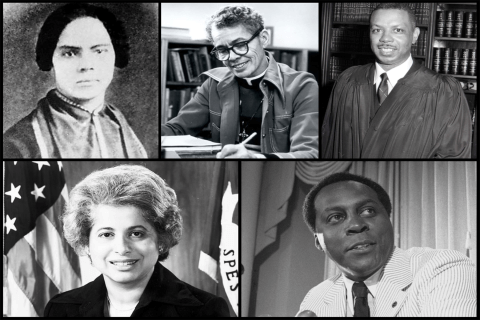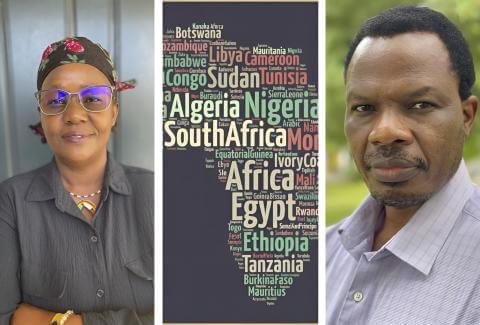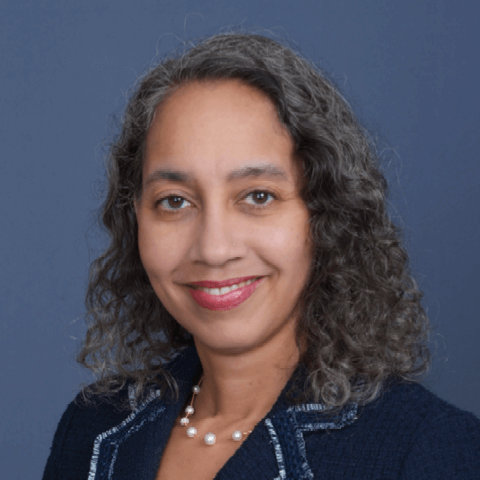
The Center for Applied Data Science and Analytics
Welcome to Howard University's Center for Applied Data Science and Analytics
The Center for Applied Data Science and Analytics (CADSA) coordinates and facilitates interdisciplinary programs in data science, data analytics, and AI; collaborates with other institutes and centers on the campus; expands and coordinates research funding; and develops research and educational linkages that will include internship and placement programs with sponsoring corporations and government agencies.
Howard University DATA Week
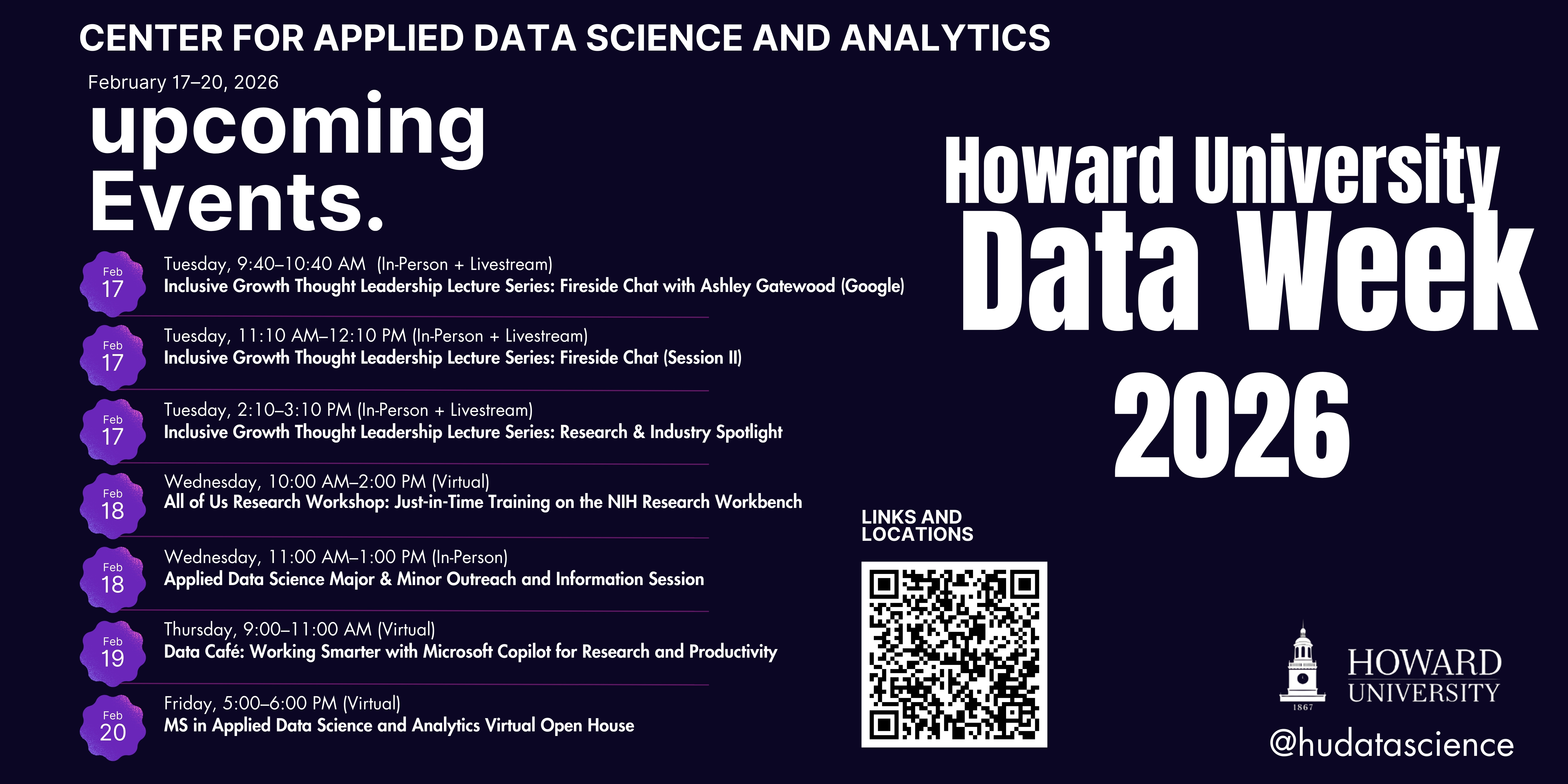
Director's Message
At the Center for Academic Data Science & Analytics (CADSA), we harness the power of data to address society’s most urgent challenges through cutting-edge research, transformative education, and global innovation. Our strategic partnerships across industry, government, and academia position CADSA to drive discovery, expand opportunity, and deliver solutions that advance the public good. I look forward to working with the Howard University community to build on our legacy of excellence, truth, and service, elevating the impact of data-driven innovation around the world.
Talitha Washington, Ph.D.
Executive Director

Vision
CADSA leverages Howard University’s unique capabilities to advance the technical aspects and responsible application of data science, analytics, and AI, with a focus on:
- Economic Growth: Driving market competitiveness, entrepreneurship, and financial innovation.
- Environmental Stewardship: Supporting responsible resource management and sustainable development.
- Health Innovation and Access: Advancing research-driven solutions to healthcare challenges and expanding access to medical advancements.
- Promoting Human Flourishing: Utilizing data-driven insights to enhance societal well-being and individual opportunities.
Through the generation, analysis, and interpretation of data, CADSA positions students, faculty, staff, and external collaborators to deliver innovative solutions to complex societal issues and emerging global grand challenges.
Mission
CADSA advances data science, analytics, and AI at Howard University by fostering interdisciplinary research, developing high-impact academic programs, and cultivating strategic partnerships. It brings together faculty, students, staff, and external collaborators to address critical societal challenges through ethical and applied data practices. By supporting transformative learning experiences and cross-disciplinary research, CADSA prepares students to become innovative thought leaders in a data-driven world. Through its programs and partnerships, CADSA empowers the Howard community to generate new knowledge, drive innovation, and apply data-driven solutions in areas such as economic growth, environmental stewardship, health access, and human flourishing.
Overview
The Center for Applied Data Science and Analytics (CADSA) at Howard University (HU) coordinates and facilitates interdisciplinary data science research and instruction, primarily in the following research areas:
- Economic Growth: Driving market competitiveness, entrepreneurship, and financial innovation.
- Environmental Stewardship: Supporting responsible resource management and sustainable development.
- Health Innovation and Access: Advancing research-driven solutions to healthcare challenges and expanding access to medical advancements.
- Promoting Human Flourishing: Utilizing data-driven insights to enhance societal well-being and individual opportunities.
To address these issues, CADSA provides the HU community with the resources needed to develop a data-driven understanding of and solutions to each of these research areas. Additionally, CADSA will develop proper insight into research trend directions and how the HU research effort can position itself to both benefit from and influence the developing trend directions. In summary, the CADSA is an HU institutional tool of inquiry that produces new information that can then be used to address important human problems. As a result, the research philosophy of the CADSA will be to inquire, to inform, and to intervene. CADSA will implement this three-fold research philosophy as described below.
Inquire
The process of inquiry will involve the probing analysis of new and/or existing data to generate new information. The ultimate outcome of inquiry will be the conversion of data into useful information, the ‘inquire’ process will be driven by posing pertinent research questions that will provide meaning and understanding to available data1 from existing sources or emanating from the pursuit of original research.
Inform
Data that is understood or appreciated in the proper context is viewed as information. Communication with peers, industry, and the public is an important aspect of competitive research, especially research that is focused on problem resolution. The research arm of the CADSA will be very active in communicating new information to all relevant stakeholder communities. This is critical to ensure discipline-based and community-based consensus regarding newly generated information and its potential use or applicability for problem resolution.
Intervene
Knowledge may be viewed as categorized or organized information. As a result, when new information is considered in the context of relevant categorized/organized existing information, it contributes to the expansion of the knowledge pool and expands the problem-solving potential of the information collective. Problem solving occurs when relevant knowledge is applied to address a current applicable problem. For problem solving to occur, knowledge intervention into the current status of problems must occur.
Research Strategy Summary
It should be noted that this research approach is applicable to each of the research areas of CADSA. Moreover, these research topics hold the potential to engage student and faculty investigators from all HU schools and colleges and ensure a broad and interdisciplinary approach to solving critical challenges that face our world.
CADSA Initiatives
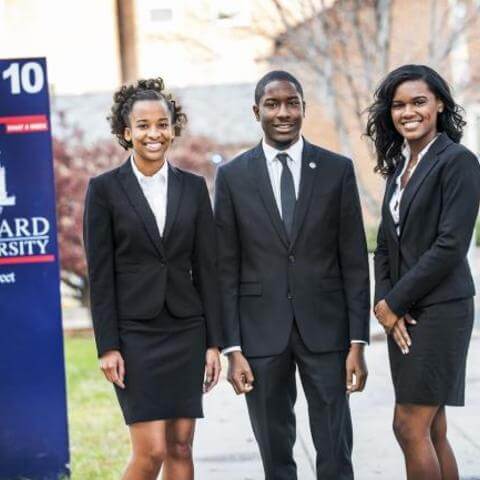
Economic Growth

Environmental Stewardship

Health Innovation and Access

Promote Human Flourishing
Core Values
At the Center for Academic Data Science & Analytics (CADSA), we recognize that data is a driving force behind progress in every academic discipline and economic sector. As data-driven technologies continue to shape how we learn, work, and lead, responsible access and application are essential to building trust and expanding opportunity. CADSA is committed to advancing education and workforce readiness, broadening access to data tools, and fostering innovation that delivers public benefit. Through this work, we catalyze institutional transformation, enhance national competitiveness, and extend the reach of data-informed solutions to improve lives and strengthen communities.
News
CADSA Team
Executive Director
Talitha M. Washington, PhD, DSc
Executive Director, Center for Applied Data Science & Analytics
Sean McCleese Endowed Chair in Computer Science, Race, and Social Justice
Professor of Mathematics
Co-Chair of AI Advisory Council
talitha.washington@howard.edu
Director of Graduate Studies
Amy Yeboah Quarkume, PhD.
Associate Professor of Africana Studies
Andrew Mellon New Direction Fellow
NCAR/ UCAR Innovator Fellow
datascience@howard.edu
Administrative Assistant
Janelle Black
CADSA Faculty Advisory Committee
Faculty
Talitha M. Washington, PhD, DSc, Mathematics
William M. Southerland, Biochemistry & Molecular Biology/Medicine
Amy Yeboah Quarkume, Earth, Environment, and Equity
Barron Harvey,School of Business/Office of the Provost
Legand Burge, Computer Science/Engineering & Architecture
Gloria Washington, Computer Science/Engineering & Architecture
Bourama Toni, Mathematics/COAS
Danda Rawat, Computer Science/Engineering & Architecture
Curtis Cain, Information Systems & Supply Chain Management/School of Business
John Kwagyan, Community & Family Medicine/Medicine
X. Simon Wang, Pharmaceutical Sciences/Pharmacy
Krishna Kumar, Biopharmaceutics & Pharmacokinetics/Pharmacy
Haydar Kurban, Economics/COAS
Yan-Liang Yu , Sociology/COAS
Zaki Sherif, Biochemistry/ College of Medicine
Abiodun Otolorin, College of Medicine
LaTanya Brown-Robinson, Economics/ COAS

